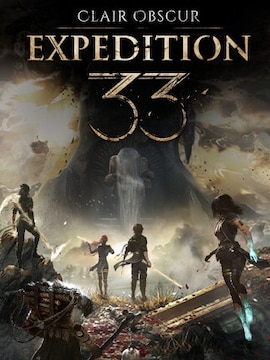Playing games is pure pleasure, but it requires certain skills, including mastery of controllers, dexterity, and creative problem-solving.
However, sometimes it turns out that skills are not everything because luck is also needed… Is there such a thing as luck based games where skills don’t matter and only Lady Luck’s favour does? Or maybe skills in all games are just an illusion because luck and randomness determine the final results?
Unveiling the Role of Luck in Video Games
Luck is needed in almost every game. Many players have surely experienced a moment when a random factor decided about their victory or defeat. It could have been a successful critical hit that finished off a boss in one blow, or a legendary weapon and life-saving potions in random loot. However, these are not the only moments when games present us with random solutions, the success of which depends solely on… the player’s luck.
A factor influencing randomness in video games is the Random Number Generator, a computer program that can be simplest explained as an alternative to rolling dice—except we don’t see the dice. This program generates a series of random numbers that then determine various aspects of the game, such as critical hits, chances to avoid damage, or the possibility of finding rare items. RNG can also affect the effectiveness of attacks or defenses, as well as generate random levels, maps, and enemies.
But why use such a solution? RNGs are a great convenience for game developers, who don’t have to individually code “every inch of the map” in open-world games. Instead, they can create codes that correspond to certain possibilities, and luck determines what happens when a player reaches a specific point.
So, as you can see, the element of randomness is present in almost all games, adding a bit of excitement and unique experiences to each playthrough. Luck, on the other hand, is what can influence the success of individual actions.
Tetris
| Release date: | 1984-06-06 |
| Genre: | Puzzle |
| Developer: | - |
The first game worth mentioning in this ranking is the old and beloved Tetris. It is one of the most popular computer games that needs no introduction.
The gameplay involves arranging horizontal lines out of falling blocks that can be rotated and moved in any way.
In the game, the falling blocks are generated randomly. When playing at the initial levels, where the elements drop quite slowly and the screen is relatively empty, this mechanic is not a problem. However, it becomes challenging when the speed of dropping blocks increases, and constructed structures already occupy the game area. At that point, everyone hopes for a bit of luck and prays for the “I” Tetrimino…
| Key features |
|---|
|
Darkest Dungeon
| Release date: | 2016-01-19 |
| Genre: | Indie |
| Developer: | Red Hook Studios |
Inspired by the works of H.P. Lovecraft, Darkest Dungeon is a turn-based RPG set in a dark fantasy, medieval-like world. The game also incorporates elements of roguelike, dungeon crawler, and horror.

The story mainly takes place in the ruins of an old estate and its dungeons, which have been overrun by dark forces due to the recklessness of its owner. The task of our team is to defeat the evil powers.
The game features a very interesting mechanic. The group of characters we lead is not composed of typical fearless heroes; they struggle with various traumas and fears. Hence, we never know if encountering another enemy will have a psychological impact on several characters, affecting the morale of the entire team.
| Key features |
|---|
|
X-COM
| Release date: | 1993-12-31 |
| Genre: | Strategy |
| Developer: | MicroProse Software, Inc |
X-COM is a great combination of economic, tactical, and strategic game with a sci-fi setting. The game serves as a precursor to a sizable franchise.

In the game, we assume the role of soldiers from the X-COM organization, formed to fight against the alien invaders attacking Earth.
Shortly after its release, the game gained popularity thanks to its difficult turn-based tactical gameplay, which, as it turned out, relied on luck. Attacks and enemy behaviour in this game were purely based on chance, and the success of our missions largely depended on fortune.
Games based on randomness and, consequently, luck pose a real challenge for players. However, their unique mechanics are what make them exceptional and unforgettable. The experiences that accompany each player are also undoubtedly remarkable.
| Key features |
|---|
|
Dragon's Lair
| Release date: | 1983-06-19 |
| Genre: | Adventure |
| Developer: | Digital Leisure Inc. |
This game features exceptional cartoon-like graphics in the style of Disney animations, and it has not only received sequels but also achieved cult status. The title is essentially an interactive cartoon based mainly on animated cutscenes and quick time events.
In the game, players take on the role of the knight Dirk The Daring, whose task is to rescue Princess Daphne and free her from the clutches of the evil sorcerer and the dragon.
Although it lacks random elements, this classic title is synonymous with luck based games. Every move must be executed with tremendous caution, care, and extraordinary reflexes—otherwise, the entire sequence must be repeated from the beginning. If you managed to complete Dragon’s Lair on your first try, you’re a true lucky one!
| Key features |
|---|
|
The Binding of Isaac
| Release date: | 2011-09-28 |
| Genre: | Adventure |
| Developer: | Edmund McMillen and Florian Himsl |
With its relatively simple, cute, chibi-like pixel graphics, this game is unanimously regarded as one of the most challenging to complete. The title references the biblical story of the same name.

In the game, players take on the role of the eponymous Isaac, whose mother one day hears the voice of God commanding her to sacrifice her son. Our protagonist’s task is to escape from his mother and overcome multiple levels of their perilous, dark home.
Given its genre, the game is characterized primarily by randomly generated maze-like levels filled with randomly generated enemies, bosses, and traps. The acquired equipment is also entirely random. To complete the game, you need not only skill but also a lucky horseshoe, a four-leaf clover, and a few rabbit’s feet because without luck, it simply won’t work…
| Key features |
|---|
|
Conclusion
In conclusion, the role of luck in video games is complex. Randomness, controlled by mechanisms such as RNG, can influence players’ outcomes and experiences. However, it is important to understand that skills, strategy, and effort still play a crucial role in achieving success. Ultimately, it is the combination of luck and skill that makes video games so fascinating and unpredictable!




